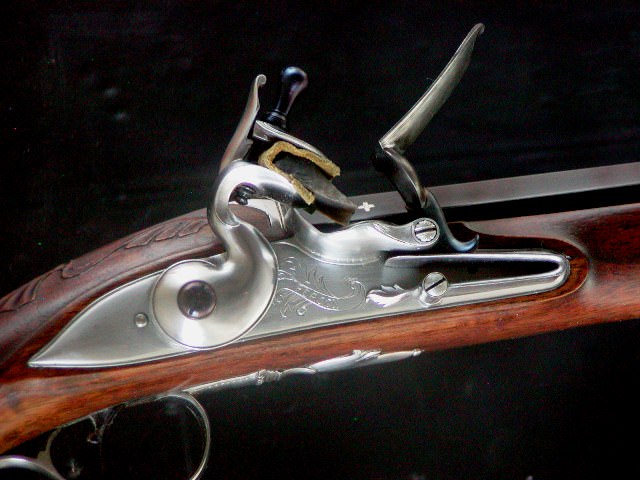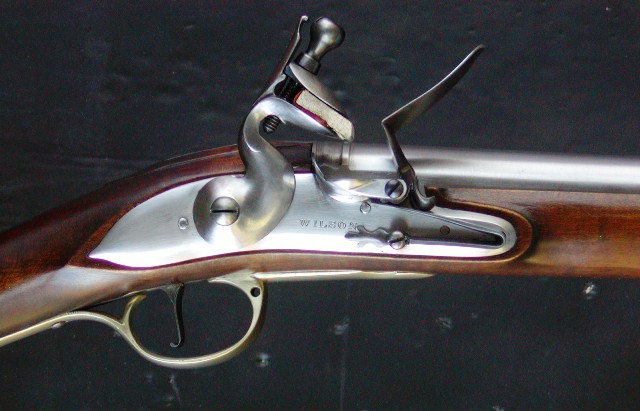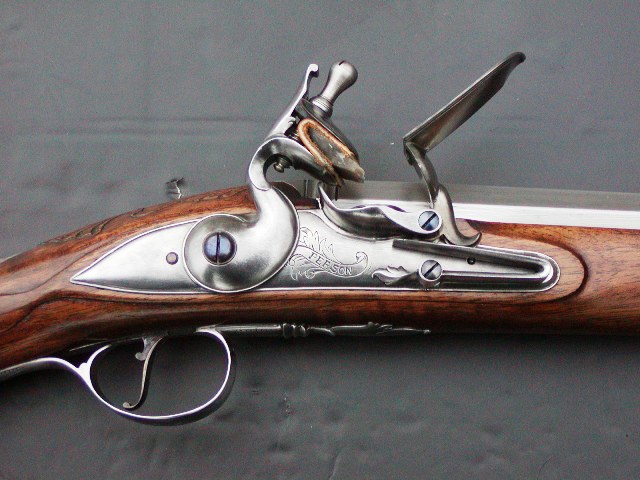I'm interested in this because I'm working on a Fowler build and very interested in the history.
In my my mind a Musket is a military gun like a Brown Bess, made for military not for hunting. But when men picked up their Smoothbore Fowling pieces and headed off to join up with a Militia was the Fowler called a "Musket" in that setting?
Did people refer to Fowling pieces as muskets on the Colonial homestead?
What is the definition of a Musket? What's the difference between a Musket and a Fowler?
So you already have an excellent definition of what makes a "musket" a musket.
As for terminology...,
Often "muskets" were also called "firelocks", though you don't see that term much in inventories; you would've heard it in a verbal setting.
Muskets of smaller caliber could be called carbines, and they could also be shorter in length with the term "carbine". The "shorter" though may not be very dramatic, it could be as little as 3" less than a full sized musket, or it could be much more, and very obvious to the eye.
As pointed out, a smaller, lighter version smoothbore that mounted a bayonet, was often called a "fusil". That could be
few-zee or
few-zil, depending on the person speaking the word in English. However, sometime folks referred to and listed in inventories and called a light, hunting, smoothbore gun a "fusil". George Morgan sold "fusils neat" at his trading post in Kaskaskia in the 1760's for example.
"Fowler" appears to be a word applied to longer barreled pieces, often large bore (12 bore to 10 bore perhaps bigger), that were used for waterfowl hunting. So simply having a light, smoothbore, with a smaller bore than a musket, which you intend to use for birding, doesn't necessarily make it a "fowler".
Why is this important to know ....?
Well the militia laws varied a great deal from colony to colony.
Some of the New England Militia were at first, armed with their fowlers, BUT as Dave pointed out, those would accept the military ammo. They accepted the ammo because they were for waterfowling, and thus had a large bore. No bayonets though.
Some of the colonies merely had arms and ammo requirements, so the man of proper age had to either have a proper musket and bayonet, OR a "firelock" and a tomahawk, AND had to provide his own ammunition.
Maryland actually had an arsenal and issued out muskets, bayonets, and cartridge boxes, BUT also allowed men to serve with their own rifles and tomahawks.
Pennsylvania had NO militia law, and it was up to the citizens to form "associations" and arm themselves as they chose. This is why you may find references to units such as "The Philadelphia Associators" or something similar to that.
As the Archbishop of Cantebury said with much sarcasm in Shakespear's
Henry V, ...
"So 'tis clear as the summer sun!"
LD









